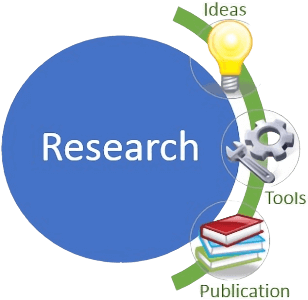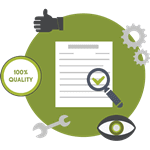 Selecting a thesis topic in HRM can be an intimidating task for many graduate and postgraduate students. The field of HRM is vast, constantly evolving, and deeply intertwined with the complexities of human behavior and organizational dynamics. As such, finding the right research topic that not only aligns with your academic interests but also contributes to the broader HRM knowledge base can be a challenging endeavor. That's where we come in to offer you expert guidance in selecting a HRM project topic. In the realm of HRM, the choice of your thesis topic is of paramount importance. It sets the stage for your entire research journey, determining the scope, depth, and impact of your study. A well-selected topic not only captures your passion but also addresses current issues and gaps in HRM literature, making your research more relevant and valuable. Conversely, a poorly chosen topic can lead to frustration, lack of motivation, and a subpar thesis. At Research Writing Help, we understand the significance of topic selection in your academic and professional career. We have a team of experienced experts and researchers who offer HRM thesis help and can guide you through the process of identifying and refining a research topic that not only piques your interest but also aligns with the latest trends and challenges in HRM. Our HR/HRM thesis topic help and guidance goes beyond the basics of topic selection, we look into the details of HRM research to help you explore uncharted territories, identify gaps in the existing literature, and develop research questions that are both innovative and relevant. Whether you are pursuing a master's degree or a Ph.D. in HRM, our goal is to assist you in writing a thesis topic that stands out, contributes to HRM scholarship, and prepares you for a successful career in the field. If you're feeling overwhelmed by the prospect of choosing one relax, we're here to guide you on how to select a thesis topic on HRM.
Selecting a thesis topic in HRM can be an intimidating task for many graduate and postgraduate students. The field of HRM is vast, constantly evolving, and deeply intertwined with the complexities of human behavior and organizational dynamics. As such, finding the right research topic that not only aligns with your academic interests but also contributes to the broader HRM knowledge base can be a challenging endeavor. That's where we come in to offer you expert guidance in selecting a HRM project topic. In the realm of HRM, the choice of your thesis topic is of paramount importance. It sets the stage for your entire research journey, determining the scope, depth, and impact of your study. A well-selected topic not only captures your passion but also addresses current issues and gaps in HRM literature, making your research more relevant and valuable. Conversely, a poorly chosen topic can lead to frustration, lack of motivation, and a subpar thesis. At Research Writing Help, we understand the significance of topic selection in your academic and professional career. We have a team of experienced experts and researchers who offer HRM thesis help and can guide you through the process of identifying and refining a research topic that not only piques your interest but also aligns with the latest trends and challenges in HRM. Our HR/HRM thesis topic help and guidance goes beyond the basics of topic selection, we look into the details of HRM research to help you explore uncharted territories, identify gaps in the existing literature, and develop research questions that are both innovative and relevant. Whether you are pursuing a master's degree or a Ph.D. in HRM, our goal is to assist you in writing a thesis topic that stands out, contributes to HRM scholarship, and prepares you for a successful career in the field. If you're feeling overwhelmed by the prospect of choosing one relax, we're here to guide you on how to select a thesis topic on HRM.
How to choose an HRM thesis paper topic that can make an impact;
Picking an impactful topic relating to HRM thesis requires careful consideration and strategic planning. It's essential to focus on current trends, address real-world challenges, and ensure your research is grounded in solid theoretical foundations. By conducting thorough research and considering the potential organizational impact, you can determine a topic that contributes to academic knowledge and offers practical solutions. Balancing feasibility with innovative insights, your chosen topic should aim to advance the field of HRM and provide significant value to both academics and industry.
- Identify Emerging Trends: To make a substantial impact, start by identifying occurring tendencies in HRM. Topics such as remote work, AI in recruitment, and diversity and inclusion are currently at the forefront, as focusing on these areas can provide fresh insights and relevance that appeal to academic and professional audiences.
- Address Real-World Problems: Investigate issues like employee retention, burnout, or talent management since by grounding your research in practical challenges faced by organizations, your thesis can offer valuable solutions and recommendations, making it highly applicable.
- Conduct a Literature Review: A comprehensive lit review is crucial in choosing your thesis topic to help you understand existing research, identify gaps, and ensure your topic is unique. You can seek HRM thesis topic writing help and our experts will guide you in reviewing scholarly articles, books, and journals to build a solid foundation for your research, ensuring it is grounded in established knowledge.
- Consider Organizational Impact: Consider the potential influence of your research on organizations and choose a topic that can influence HR policies, practices, or strategies. A research study that can lead to improved organizational performance, employee satisfaction, or operational efficiency is likely to be well-received and valued by stakeholders.
- Quantitative vs. Qualitative: Decide whether your research will be quantitative or qualitative, whereby quantitative research involves statistical analysis and can provide measurable insights, while qualitative research offers in-depth understanding through interviews and observations. Your choice should align with the nature of your research question and the type of data you aim to collect.
- Do a Pilot Study: Conducting a test study can be beneficial before finalizing your topic since a small-scale preliminary study helps test your research design, methodology, and data collection tools, which can reveal potential issues and refine your approach, increasing the reliability and validity of your final research.
- Contribution to Theory: Ensure that your topic contributes to existing HRM theories by aiming to fill theoretical gaps or challenge current paradigms. By advancing theoretical understanding, we make sure your thesis makes a significant academic contribution, enhancing its value and impact.
- Ensure Feasibility: Consider factors such as time, resources, and access to data since a feasible topic is one that you can realistically complete within the given constraints, ensuring a smooth research process and timely completion.
What is the significance of a well-chosen thesis topic on HRM?
The significance of a well-guided topic for an HRM thesis lies in its ability to shape the entire research process and determine the overall impact of your work. A carefully selected topic ensures that your research addresses pressing issues within the field, making it relevant and valuable to academics and practitioners alike. By focusing on a significant topic, you can contribute to solving real-world problems, offering practical solutions that can be implemented in organizational settings. This practical relevance helps enhance the applicability of your findings as well as demonstrates your ability to bridge the gap between theory and practice. A well-chosen topic also reflects your understanding of current trends and developments in HRM, and by aligning your research with emerging issues such as remote work, artificial intelligence in recruitment, or diversity and inclusion, you position yourself at the forefront of the field. This forward-thinking approach can attract attention from academics and industry professionals, leading to greater recognition and opportunities for collaboration as it showcases your ability to stay updated with the latest advancements and adapt to the evolving HRM field. From an academic perspective, a well-selected topic contributes to advancing knowledge within the field, allowing you to identify and fill gaps in existing research, challenge established theories, and propose new frameworks or models. This scholarly contribution can lead to publications in reputable journals, invitations to present at conferences, and recognition within the academic society. These kinds of achievements are crucial for those pursuing careers in academia or research, as they establish your credibility and expertise in HRM. A great topic can enhance your career prospects by presenting your ability to conduct rigorous research and address complex HR issues. Employers value candidates who can bring fresh insights and innovative solutions to their organizations. A thesis that tackles a significant HRM topic demonstrates your problem-solving skills, analytical abilities, and commitment to improving HR practices, which can set you apart in a competitive job market and open doors to advanced career opportunities. The significance of a well-chosen HRM thesis topic extends beyond academia, influencing your professional growth and contributing to enriching organizational practices.
The importance of selecting the right thesis topic remains critical as it serves as the foundation upon which your entire research endeavor is built, influencing not only your academic journey but also your contribution to the field. We gladly offer quality HRM thesis topic writing help to aspiring professionals and researchers. Throughout this discussion, we have emphasized the value of having skilled writers by your side, and in this conclusion, we reiterate the significance of this support. Our team of experienced HRM thesis paper topic writers understands the complexities of HRM studies as they are well-versed in the ever-evolving dynamics of HR, ranging from talent management to diversity and inclusion, HR analytics, and beyond. With their guidance on how to select a thesis topic on HRM, you can be confident that your chosen research idea will be both academically rigorous and practically relevant. Moreover, the process of selecting a thesis topic is not just about meeting academic requirements. It's an opportunity to make a meaningful impact on organizations and the workforce. A well-crafted HR research topic can shed light on critical HR challenges, inform strategic decision-making, and improve workplace practices. Our writers are dedicated to helping you identify topics that have the potential to shape the future of HRM positively. Your HRM topic is the compass that guides your academic and professional journey. With our quality thesis topic development help, you can embark on this journey with confidence, knowing that your research will be rooted in expertise and aligned with the current trends and challenges in HRM. We are committed to supporting you in making a significant contribution to the HR field, and we look forward to being a part of your success.
Help To Develop a Topic for a Human Resource Management Thesis
 Developing a relevant topic for an HRM thesis is a crucial step in the academic journey of aspiring HR professionals and researchers. The field of HRM is dynamic and multifaceted, encompassing various aspects of organizational behavior, talent management, employee relations, and strategic HR planning. Writing a thesis that not only aligns with your academic interests but also contributes to the broader knowledge base in HRM requires careful consideration and expertise. Fortunately, there is assistance available for those seeking to navigate this challenging terrain. At our disposal, we have a team of skilled HRM thesis topic writers who can guide and support you in your quest to develop a topic that not only meets academic standards but also addresses real-world HR challenges. HRM is a discipline constantly evolving due to changes in the business landscape, workplace dynamics, and technological advancements. Therefore, identifying a pertinent research topic that offers fresh insights and practical implications is of utmost importance. Our team of writers possesses a deep understanding of the field's ideologies, trends, and emerging issues. They are well-equipped to offer HR/HRM thesis topic help to ensure you pick a subject that aligns with your academic goals and interests while also addressing contemporary HR challenges. Whether you are interested in exploring topics related to employee engagement, diversity, and inclusion, talent acquisition, HR analytics, or any other aspect of HRM, our skilled writers can provide valuable guidance and help you refine your research focus. They have a wealth of experience in conducting literature reviews, analyzing current HR trends, and formulating research questions that contribute to the advancement of HRM knowledge. In this era of data-driven decision-making, HR professionals and scholars have a unique opportunity to make a meaningful impact on organizations and the workforce. With the expertise of our expert writers, you can embark on a research journey that not only enriches your academic experience but also adds value to the HRM field and the organizations it serves. Our HRM thesis help gets you set on developing a topic that sets you on the path to becoming a proficient HR researcher and practitioner. In a nutshell, we offer reliable thesis paper topic writing guidance.
Developing a relevant topic for an HRM thesis is a crucial step in the academic journey of aspiring HR professionals and researchers. The field of HRM is dynamic and multifaceted, encompassing various aspects of organizational behavior, talent management, employee relations, and strategic HR planning. Writing a thesis that not only aligns with your academic interests but also contributes to the broader knowledge base in HRM requires careful consideration and expertise. Fortunately, there is assistance available for those seeking to navigate this challenging terrain. At our disposal, we have a team of skilled HRM thesis topic writers who can guide and support you in your quest to develop a topic that not only meets academic standards but also addresses real-world HR challenges. HRM is a discipline constantly evolving due to changes in the business landscape, workplace dynamics, and technological advancements. Therefore, identifying a pertinent research topic that offers fresh insights and practical implications is of utmost importance. Our team of writers possesses a deep understanding of the field's ideologies, trends, and emerging issues. They are well-equipped to offer HR/HRM thesis topic help to ensure you pick a subject that aligns with your academic goals and interests while also addressing contemporary HR challenges. Whether you are interested in exploring topics related to employee engagement, diversity, and inclusion, talent acquisition, HR analytics, or any other aspect of HRM, our skilled writers can provide valuable guidance and help you refine your research focus. They have a wealth of experience in conducting literature reviews, analyzing current HR trends, and formulating research questions that contribute to the advancement of HRM knowledge. In this era of data-driven decision-making, HR professionals and scholars have a unique opportunity to make a meaningful impact on organizations and the workforce. With the expertise of our expert writers, you can embark on a research journey that not only enriches your academic experience but also adds value to the HRM field and the organizations it serves. Our HRM thesis help gets you set on developing a topic that sets you on the path to becoming a proficient HR researcher and practitioner. In a nutshell, we offer reliable thesis paper topic writing guidance.
The best way to create a great topic for a HR management thesis;
Forming a great topic for an HR management thesis requires a blend of personal interest, thorough research, and strategic planning. Reflecting on your passions within HRM helps to maintain motivation, while a comprehensive literature review can reveal gaps in existing research. Narrowing your focus to a specific, practical research question ensures relevance and feasibility while staying updated with the latest industry developments and seeking feedback from peers or mentors further refine your topic, ensuring it is both innovative and impactful in the field of HR management.
- Start by reflecting on your interests within the field of management: Your interests are a crucial starting point for developing a thesis topic, so consider what aspects of HR management excite you the most. Are you interested in talent acquisition, employee retention, organizational culture, or diversity and inclusion? Identifying your passion areas will help ensure sustained motivation throughout the research process.
- Conduct a thorough literature review to identify gaps or unanswered questions in existing research: Dive deep into academic journals, books, and reputable online sources to understand what has already been explored in HR management. Look for recurring themes and identify areas that seem under-researched or where existing studies have conflicting findings, as these gaps can provide a fertile ground for your thesis topic.
- Narrow down your focus to a specific research question or problem: Broad topics can be burdensome and difficult to manage thus, after identifying general areas of interest, narrow them down to specific research questions or problems. For instance, instead of focusing on "employee retention," you might explore "the impact of flexible working hours on employee retention in tech companies."
- Think about the practical implications of your research: A great thesis topic adds to academic knowledge and has practical relevance hence the need to consider how your research can solve real-world HR problems or improve existing practices. Topics with practical implications are more likely to be valued by practitioners and have a lasting impact.
- Formulate hypotheses or research questions that your thesis will address: Once you have a specific focus, develop clear hypotheses or research questions that will guide your research methodology and help you stay on track. For instance, "Does implementing a remote work policy increase employee satisfaction in multinational corporations?"
- Ensure that your chosen topic is achievable within the constraints of your resources, time, and access to data or participants: viability is key when selecting a thesis topic. Evaluate whether you have the necessary resources, time, and access to data or participants to conduct your research as well as consult experts who help to develop a topic for a human resource management thesis for guidance. A great topic is one that can be realistically explored within your constraints.
- Keep up with the latest management theory and practice developments to ensure your topic remains relevant and cutting-edge: HR management is a dynamic field with continuous developments hence, stay updated with the latest theories, trends, and practices by reading recent publications, attending conferences, and engaging with industry professionals as this will help you choose a topic that is current and relevant.
- Consider conducting preliminary research or surveys to test the viability of your research questions and refine your topic further: Before fully committing to your topic, conduct a preparatory study or small-scale surveys to help you test the viability of your research questions, identify potential challenges, and refine your topic based on initial findings.
- Share your proposed topic with peers, colleagues, or mentors to gather feedback and make any necessary adjustments: Getting feedback from others can provide valuable insights and help you refine your topic. You can discuss your ideas with peers, colleagues, or mentors, like us, who have experience in HR management research as their feedback can help you identify potential weaknesses and strengthen your research focus.
Which are some of the best thesis topic samples in HRM?
Selecting a compelling thesis topic in Human Resource Management (HRM) is crucial for a successful academic research study. A well-chosen topic aligns with your interests as well as addresses current challenges in the field. From exploring the impact of artificial intelligence in talent acquisition to examining the role of diversity and inclusion initiatives on organizational performance, the best thesis topics in HRM offer opportunities to contribute significant insights and practical solutions to the ever-evolving ideology of human resources.
- The Role of Artificial Intelligence in Talent Acquisition: This topic explores how AI technologies are revolutionizing the recruitment process, from candidate sourcing to selection by examining the benefits and challenges of using AI in HRM and its impact on the efficiency and effectiveness of hiring practices.
- Employee Engagement Strategies in Remote Work Environments: With the rise of remote work, understanding how to keep employees engaged is crucial thus, this topic investigates various strategies organizations use to maintain high levels of employee engagement and the effectiveness of these strategies.
- The Impact of Diversity and Inclusion Initiatives on Organizational Performance: This research study explores the correlation between diversity and inclusion practices and organizational performance metrics as it aims to identify which initiatives are most effective in creating a diverse and inclusive workplace.
- The Influence of Leadership Styles on Employee Job Satisfaction: The topic focuses on how different leadership styles affect employee job satisfaction and retention by exploring whether transformational, transactional, or laissez-faire leadership is most conducive to a positive work environment.
- Strategies for Managing Workplace Stress and Its Effect on Employee Productivity: This research investigates the effectiveness of various stress management strategies implemented by organizations and their impact on employee productivity and well-being.
- The Effect of Employee Training and Development Programs on Career Advancement: This topic explores how different training and development programs influence employees' career progression within an organization, as it aims to identify best practices for designing impactful training initiatives.
- The Relationship Between Organizational Culture and Employee Turnover Rates: The aim is to examine how organizational culture influences employee turnover by investigating which cultural attributes contribute to high retention rates and which may lead to increased turnover.
Why do HRM students find it challenging to select a suitable thesis topic?
 Selecting a suitable thesis topic in the field of Human Resource Management (HRM) can be challenging for many students. One of the primary challenges is the immensity of the field. HRM encompasses a wide range of subtopics, including recruitment, employee relations, performance management, compensation, and benefits, among others, and this breadth can make it difficult for students to pinpoint a specific area to focus on. Another significant challenge is the need for originality, as students are often required to contribute new knowledge or insights to the field, which necessitates identifying a unique angle or an unexplored area. This can be particularly challenging given the expansive body of existing research in HRM. Conducting a thorough literature review to find gaps in the current research can be time-consuming and requires a critical and analytical mindset, which our HRM thesis paper topic writers are masters of. Practical considerations may also lead to the difficulty of selecting a thesis topic since attainability is a major concern; students must ensure they have access to the necessary data, resources, and participants to conduct their research. Limited access to organizational data or the unwillingness of companies to participate in studies can pose significant hindrances. Students must consider time constraints and the scope of their research to ensure they can complete it within the given timeframe. The pressure to choose a topic with real-world relevance adds another layer of complexity since students aim to select topics that are not only academically significant but also practically valuable to HR professionals and organizations. Balancing academic rigor with practical applicability can be challenging, especially for those who may not yet have extensive experience in the HR field. The fear of making the wrong choice can be paralyzing since the thesis is a significant academic milestone, and students may feel immense pressure to choose the "perfect" topic. This fear can lead to procrastination and difficulty in making a final decision. Seeking feedback from peers, mentors, and advisors like ours to help deal with this fear, but ultimately, students must take the plunge and commit to a topic, knowing that adjustments and refinements can be made along the way.
Selecting a suitable thesis topic in the field of Human Resource Management (HRM) can be challenging for many students. One of the primary challenges is the immensity of the field. HRM encompasses a wide range of subtopics, including recruitment, employee relations, performance management, compensation, and benefits, among others, and this breadth can make it difficult for students to pinpoint a specific area to focus on. Another significant challenge is the need for originality, as students are often required to contribute new knowledge or insights to the field, which necessitates identifying a unique angle or an unexplored area. This can be particularly challenging given the expansive body of existing research in HRM. Conducting a thorough literature review to find gaps in the current research can be time-consuming and requires a critical and analytical mindset, which our HRM thesis paper topic writers are masters of. Practical considerations may also lead to the difficulty of selecting a thesis topic since attainability is a major concern; students must ensure they have access to the necessary data, resources, and participants to conduct their research. Limited access to organizational data or the unwillingness of companies to participate in studies can pose significant hindrances. Students must consider time constraints and the scope of their research to ensure they can complete it within the given timeframe. The pressure to choose a topic with real-world relevance adds another layer of complexity since students aim to select topics that are not only academically significant but also practically valuable to HR professionals and organizations. Balancing academic rigor with practical applicability can be challenging, especially for those who may not yet have extensive experience in the HR field. The fear of making the wrong choice can be paralyzing since the thesis is a significant academic milestone, and students may feel immense pressure to choose the "perfect" topic. This fear can lead to procrastination and difficulty in making a final decision. Seeking feedback from peers, mentors, and advisors like ours to help deal with this fear, but ultimately, students must take the plunge and commit to a topic, knowing that adjustments and refinements can be made along the way.
HRM is a dynamic and multifaceted discipline that helps in shaping organizational success, employee satisfaction, and overall workplace dynamics. Therefore, choosing the right topic is paramount to conducting meaningful research and contributing to the existing body of knowledge. There are various strategies and considerations that can be considered as the best help to develop a topic for a human resource management thesis to inspire scholars in their quest to identify a suitable study subject. We begin by emphasizing the significance of selecting a topic that aligns with one's interests and passion, as this not only ensures motivation throughout the research process but also leads to a deeper understanding of the subject matter. Furthermore, we will stress the importance of staying updated with the latest trends and emerging issues in HRM, as this can provide fertile ground for exploring innovative and relevant research topics. Leveraging technology and data analytics in HRM, investigating diversity and inclusion practices, and examining the impact of remote work arrangements are just a few examples of contemporary themes that offer exciting research opportunities. Moreover, the process of brainstorming, conducting lit reviews, and engaging with mentors and professors can help refine and narrow down potential thesis topics. Collaboration with industry experts and practitioners can also offer valuable insights into real-world HRM challenges and contribute to the practical relevance of the research. More so, the process of developing a topic for an HRM thesis is not a solitary endeavor. It involves a combination of personal passion, awareness of current HRM issues, scholarly engagement, and collaboration with professionals in the field. By following these steps and embracing the evolving nature of HRM, prospective researchers can embark on a meaningful academic journey, contributing to the advancement of HRM knowledge and making a positive impact on the world of work. The HRM thesis is not just a requirement for academic completion; it is an opportunity to contribute to the betterment of organizations, employees, and society as a whole through the pursuit of knowledge and innovation in the field of HRM.













